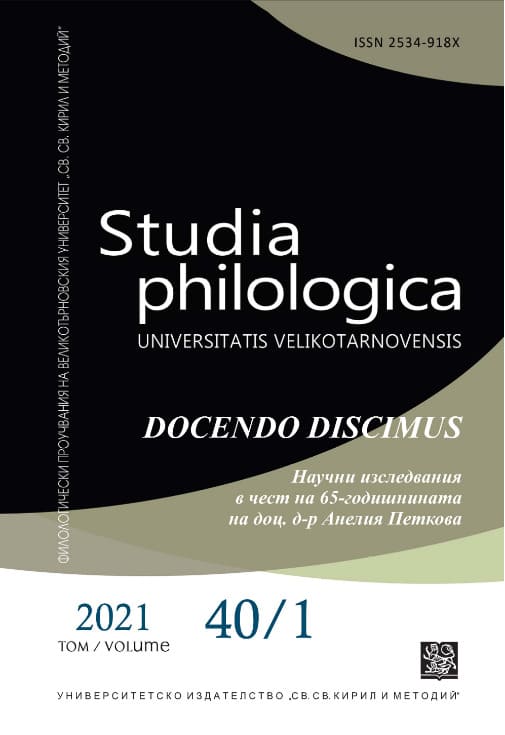Семантична и формална съпоставка на презумптива и конклузива в съвременния български език
Semantic and Formal Comparison Between Presumptive and Conclusive Forms in Modern Bulgarian Language
Author(s): Krasimira AleksovaSubject(s): Language studies, Language and Literature Studies, Theoretical Linguistics, Semantics, South Slavic Languages
Published by: Великотърновски университет „Св. св. Кирил и Методий”
Keywords: conclusive/inferential; presumptive; abductive reasoning; monopropositional category; bipropositional category
Summary/Abstract: The research article compares and contrasts the semantics of the Bulgarian conclusive as one of the four evidencials and the presumptive as an independent category in modern Bulgarian. The similarity between them is found in the fact that they are both based upon abductive reasoning. The conclusive is a monoproportional category, however, the presumptive is a biproportional category, as it is a means for the speaker to express preferences towards one of the two contradicting hypotheses on a certain state of affairs. The comparison between their formal paradigms shows that the forms of all past presumptive tenses are composed by replacing the indicative form of the verb to be in the conclusive form of Aorist, Imperfect and Pluperfect with the presumptive form of the verb to be.
Journal: Studia Philologica Universitatis Velikotarnovensis
- Issue Year: 40/2021
- Issue No: 1
- Page Range: 71-86
- Page Count: 16
- Language: English, Bulgarian

